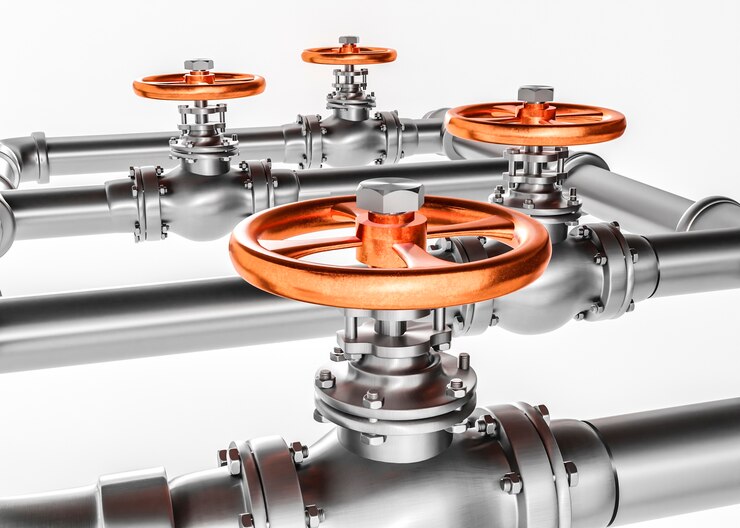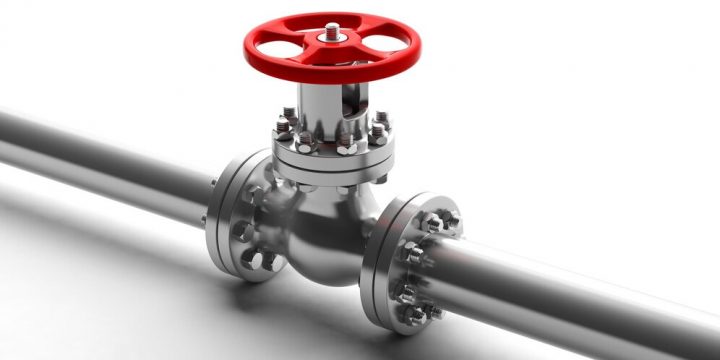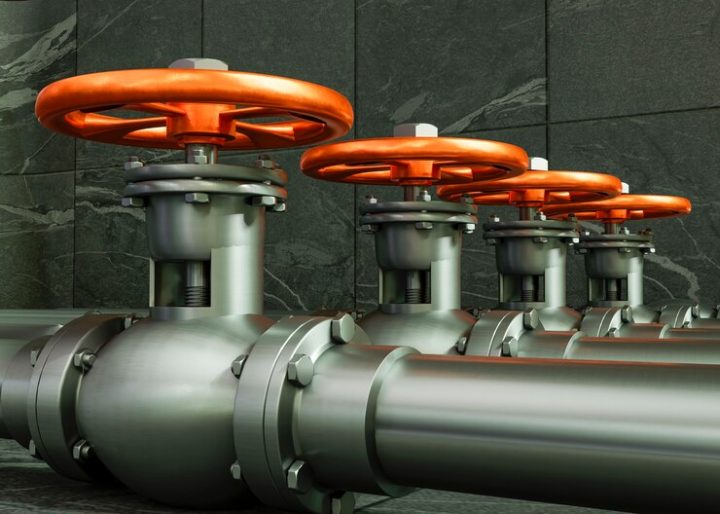Valves are an essential component of various industrial systems and applications, ensuring the control of fluid flow, pressure regulation, and safety across industries such as oil and gas, water treatment, power generation, chemical processing, and more. In India, the valve manufacturing industry has grown exponentially due to the country’s robust industrial base, skilled workforce, and an increasing demand for industrial goods both domestically and internationally.
In this blog, we’ll explore the valve manufacturing landscape in India, key players dominating the sector, the technologies driving innovation, challenges faced by the industry, and the future prospects of this growing market.
The Importance of Valves in Modern Industry
Valves serve as control mechanisms in pipelines and systems that transport fluids, gases, and other materials. They play a vital role in various sectors:
- Oil and Gas: Valves regulate the flow of crude oil, natural gas, and other hydrocarbons throughout the drilling, refining, and distribution process.
- Water Treatment: Valves are used to control water flow in treatment plants, distribution networks, and sewage systems.
- Power Generation: From nuclear power plants to conventional thermal stations, valves are critical for steam and gas flow control.
- Chemical Processing: Valves ensure safe operation by managing corrosive or high-temperature fluids used in chemical plants.
- Pharmaceutical and Food Processing: Valves used in these industries must meet stringent hygiene and safety standards to prevent contamination.
Evolution of Valve Manufacturing in India
India’s valve manufacturing industry has evolved significantly over the last few decades. Initially, most valves were imported from other countries, but as India’s industrial sector grew, so did the demand for locally manufactured valves. Over time, domestic manufacturers have developed the capabilities to design, produce, and supply valves that meet international standards, allowing India to become a global player in the valve industry.
Some of the key factors driving the growth of valve manufacturing in India include:
- Rising Industrialization: As India continues to industrialize rapidly, there is a growing need for valves across industries like power, oil and gas, and water treatment.
- Government Initiatives: Initiatives such as ‘Make in India’ have boosted domestic manufacturing by encouraging companies to produce locally and reduce dependency on imports.
- Global Demand: Indian valve manufacturers have increasingly tapped into the global market, especially in regions like the Middle East, Africa, and Southeast Asia.
- Technological Advancements: The adoption of advanced manufacturing technologies has enabled Indian companies to produce high-quality valves at competitive prices.
Key Players in India’s Valve Manufacturing Industry
India’s valve manufacturing sector is highly competitive, with numerous players ranging from small-scale manufacturers to large, well-established firms. Some of the key players in the Indian valve manufacturing landscape include:
1. L&T Valves
Overview: L&T Valves, a subsidiary of the engineering and construction giant Larsen & Toubro, is one of the leading valve manufacturers in India. With a global presence, the company designs and manufactures industrial valves used in critical applications in industries such as oil and gas, power, and water.
Products: Their product range includes gate valves, globe valves, check valves, ball valves, and butterfly valves.
Technology: L&T Valves leverages cutting-edge technologies such as additive manufacturing (3D printing) and Industry 4.0 to enhance productivity and product quality.
2. Kirloskar Brothers Limited (KBL)
Overview: KBL is a prominent engineering conglomerate with a strong presence in the valve manufacturing sector. They provide engineered solutions for a variety of applications, including water, power, and industrial sectors.
Products: KBL’s range of valves includes sluice valves, butterfly valves, non-return valves, air valves, and control valves.
Technology: The company focuses on energy-efficient valve solutions and uses modern CNC machines, robotics, and automated testing systems to ensure high precision and reliability.
3. Aira Euro Automation
Overview: Aira Euro Automation is a leading manufacturer of automated industrial valves, serving sectors like oil and gas, petrochemical, chemical, and HVAC.
Products: Aira specializes in ball valves, butterfly valves, control valves, and actuators.
Technology: The company emphasizes automation, producing both manual and actuated valves, and uses the latest CAD/CAM software for design and manufacturing precision.
4. Microfinish Valves
Overview: Microfinish Valves is a renowned Indian company with a strong presence in the global market, offering a wide range of industrial valves that cater to sectors such as oil and gas, energy, water, and wastewater treatment.
Products: The company produces ball valves, butterfly valves, gate valves, and control valves.
Technology: Microfinish Valves employs advanced manufacturing techniques like lean production and quality management systems to ensure efficiency and consistency.
5. Cair Euromatic Automation
Overview: Cair Euromatic is another major player in the Indian valve industry, focusing on the automation of industrial valves.
Products: Cair offers pneumatic actuators, ball valves, butterfly valves, and rotary actuators.
Technology: Cair focuses on R&D and innovation, especially in the area of valve automation technologies, helping to streamline industrial processes.
6. Amco Valves
Overview: Amco Valves is a leading supplier of high-performance valves for critical industrial applications.
Products: Their portfolio includes gate, globe, check, ball, and butterfly valves designed for applications in oil and gas, water, and other industries.
Technology: Amco uses precision casting and forging technologies, along with advanced inspection techniques to ensure durability and reliability.
See Also Ultimate Guide to Understanding Different Types of Valves
Technologies Driving Valve Manufacturing in India
The valve manufacturing industry in India has benefited immensely from advancements in technology, helping manufacturers improve product quality, reduce costs, and meet stringent international standards. Some key technological developments include:
- Automation and Smart Valves: The advent of Industry 4.0 and the Internet of Things (IoT) has led to the development of smart valves that can be monitored and controlled remotely. These valves are equipped with sensors that provide real-time data on flow rates, pressure, and temperature, enhancing safety and operational efficiency.
- Advanced Materials: Indian valve manufacturers are increasingly using advanced materials such as Hastelloy, Inconel, and other high-performance alloys to produce valves that can withstand harsh conditions such as high pressure, temperature, and corrosion.
- 3D Printing and Additive Manufacturing: L&T Valves has been a pioneer in adopting additive manufacturing techniques to produce complex valve components with higher precision and lower material waste. 3D printing allows for rapid prototyping and customization.
- CNC Machining: Computer Numerical Control (CNC) machining is widely used by valve manufacturers in India to achieve high precision in valve components.
- Robotic Welding and Assembly: Many Indian valve manufacturers have adopted robotic systems for welding and assembling valves, ensuring higher accuracy and efficiency.
- Advanced Coatings: To improve the durability and performance of valves, manufacturers use advanced coating techniques like thermal spraying, electroplating, and powder coating to protect valves from corrosion and wear.
- Finite Element Analysis (FEA): FEA is a simulation technique used by valve manufacturers to predict how valves will perform under various conditions, allowing for optimized design and improved performance.
Challenges Faced by Indian Valve Manufacturers
Despite the growing demand and the positive outlook for India’s valve manufacturing industry, several challenges remain:
- Competition from International Manufacturers: Indian manufacturers face stiff competition from well-established international players, particularly from Europe, the U.S., and China. To stay competitive, Indian companies must focus on innovation, quality, and cost efficiency.
- Raw Material Availability: The availability of high-quality raw materials such as stainless steel, carbon steel, and special alloys is critical for valve manufacturing. Any disruption in the supply chain can lead to production delays and increased costs.
- Skill Gap: As the valve manufacturing industry becomes more technology-driven, there is a growing need for a skilled workforce capable of operating advanced machinery, conducting research and development, and ensuring quality control.
- Stringent Regulatory Requirements: Manufacturers must comply with stringent safety and environmental regulations, both domestically and in international markets. Adhering to these standards can be challenging, particularly for smaller companies.
- Intellectual Property (IP) Protection: As Indian companies develop innovative valve technologies, protecting intellectual property becomes crucial. However, IP enforcement in India can be a complex and time-consuming process.
See Also Rise of Valve Manufacturers in India: Innovations and Industry Insights
Future Prospects for Valve Manufacturing in India
Despite the challenges, the future of the valve manufacturing industry in India looks promising. Several factors are likely to contribute to the continued growth of this sector:
- Increased Demand in Infrastructure Development: India’s ongoing infrastructure development projects, such as the Smart Cities Mission and the expansion of the oil and gas industry, will drive demand for valves.
- Export Opportunities: Indian valve manufacturers have already made significant inroads into global markets, and this trend is expected to continue. The Middle East, Africa, and Southeast Asia are key markets for Indian valve exports.
- Technological Advancements: Continued investment in research and development will enable Indian manufacturers to produce more advanced valves, including smart valves, that meet the evolving needs of industries.
- Government Support: Government initiatives such as ‘Make in India’ and increased investment in manufacturing and infrastructure are likely to boost the valve manufacturing sector.
- Green Technologies: With a growing focus on environmental sustainability, there is likely to be increased demand for energy-efficient valves that help industries reduce emissions and conserve energy.
Conclusion
India’s valve manufacturing landscape is characterized by a growing number of domestic players, technological advancements, and an increasing focus on quality. The industry’s future looks bright, with opportunities for expansion both in domestic and international markets. However, manufacturers must continue to invest in R&D, adopt new technologies, and improve product quality to remain competitive on the global stage.
If you are looking for reliable valve manufacturers in India, you can explore a wide range of options on Enggpro, a B2B marketplace for engineering products and services. Find top-rated Valves manufacturers in India on Enggpro and connect with industry-leading suppliers to meet your business needs.



